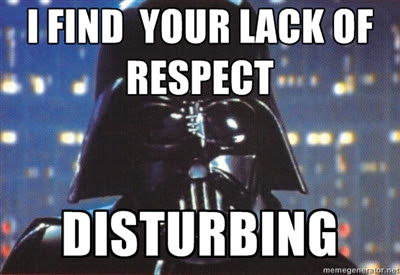Tuesday, April 16, 2013
Papa Don't Teach
In the middle of writing my first unit plan timeline for my Master's program, I can't help but think about a discussion my peers and I had with our professor yesterday.
The particular course in question is focused around the multiculturalism we will see in our classroom on all scales, even controversial ones like religion and sexual orientation. The class is small, which is conducive to a lot of discussion. Because there are so few of us, we are able to be comfortable being extremely honest. No one ever fights, even when we disagree. Yesterday, however, found us all agreeing on the blatant errors in the education system. The number one problem? Lack of respect for the profession, most grossly illustrated by lack of pay.
Here's what non-educators don't understand: you have to know a lot about a lot to be a teacher. That is the easiest way to put it. More specifically: you have to know how to handle your subject (multiple ones if you're a lower-grades educator); you must meet national, state, school district, and school standards; you must learn classroom management skills; you must learn how to teach learners from all demographics; you must be able to differentiate for each of these students. You must learn how to plan, how to grade, how to teach (there is actually a method), how to reach every student. You have to learn how to balance between the technical (test scores), the outsiders (parents and some administrators), and the most important piece, the education itself. All the while, we are offered jobs on a contract basis for very little pay.
No one teaches for money. But does that mean educators don't deserve pay commensurate to that of doctors? No. Quite the contrary.
Just like a doctor, you have to be on call 24/7. The job never stops, even if you're a great time manager, because you never stop caring.
Just like a doctor, you must learn about many different systems. You must learn how each system works, how each system can perform at its healthiest, and how to diagnose and solve any problems within each system.
Just like a doctor, we have many patients, but we also have their families and advocates to manage as well.
Just like a doctor, we have to be trained explicitly. We have to care, manage, problem-solve, communicate, educate, practice, practice some more, plan, plan even more, and make sure we are doing only benevolent deeds. Our number one priority is saving lives. We may not take the Hippocratic oath, but we make a solemn promise to do whatever we can for our students to ensure no harm comes to them. Sometimes that oath is more literal than other times, but it is always something that we do.
But even average entry-level doctors make well over $100,000. The average entry-level teacher on the other hand? $30,000-$38,000 here in NC, depending on the level of degree they hold.
The saddest thing of all is not that the time, effort, and sheer amount of knowledge the average teacher must have to adequately perform the job is overlooked and underpaid; it is that if more men were in the teaching profession, we could more successfully ask for pay raises.
And as a female pre-service teacher who is spending the same amount of time on teacher training per week as a full-time job for zero pay, who must act as a doctor but get paid as a pauper, that doesn't sit well with me.
That's why it's documentary time. Something has to shift. If papa don't teach, then mama (and already-teaching papas) don't get paid? I don't think so.
Subscribe to:
Post Comments (Atom)


I've long thought professional athletes and teachers ought to switch pay scales, but I seriously doubt it will ever happen. If we want to have our children learn from the best, we must make the jobs attractive. Hopefully progress will be made in this area.
ReplyDelete